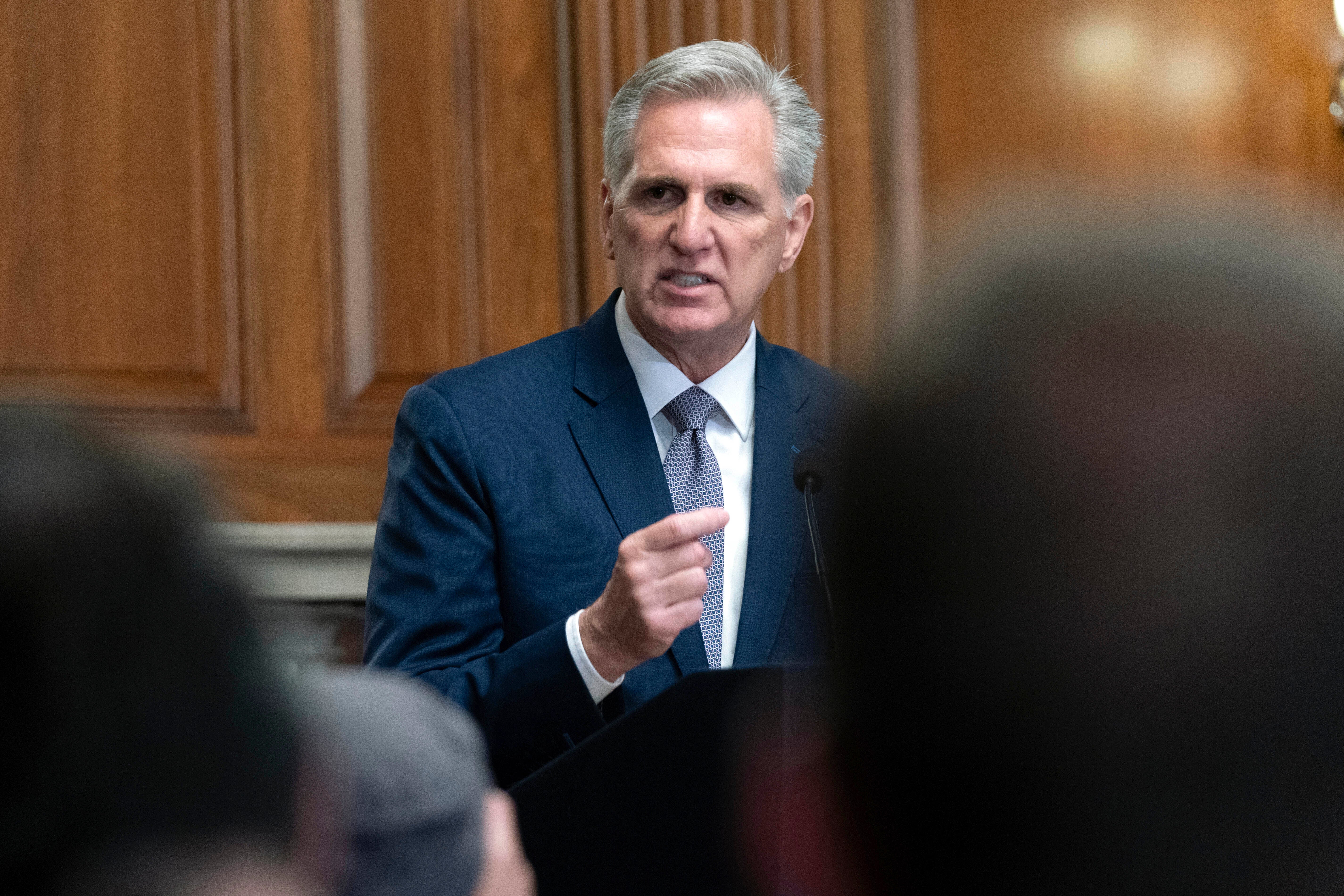Has House speaker turmoil left US struggling to respond to Hamas attack on Israel?
The chaos in the House has real-life consequences

Your support helps us to tell the story
From reproductive rights to climate change to Big Tech, The Independent is on the ground when the story is developing. Whether it's investigating the financials of Elon Musk's pro-Trump PAC or producing our latest documentary, 'The A Word', which shines a light on the American women fighting for reproductive rights, we know how important it is to parse out the facts from the messaging.
At such a critical moment in US history, we need reporters on the ground. Your donation allows us to keep sending journalists to speak to both sides of the story.
The Independent is trusted by Americans across the entire political spectrum. And unlike many other quality news outlets, we choose not to lock Americans out of our reporting and analysis with paywalls. We believe quality journalism should be available to everyone, paid for by those who can afford it.
Your support makes all the difference.US politicians frequently say the United States has no greater friend than Israel, while none other than Prime Minister Benjamin Netanyahu has said that the United States is America’s greatest ally.
The United States was one of the first countries to recognise the state of Israel in 1948 and President Harry Truman’s support for the country cemented the Democratic Party’s support. Though in recent years, many progressive members of the Democratic caucus – including Sen Bernie Sanders, who lived on a kibbutz in his youth – have become more critical of the right-wing Israeli government.
Meanwhile, while few Jewish Americans vote Republican, the GOP’s history of supporting a robust foreign policy combined with the fact that evangelical Christians largely support Israel has meant the party also plays up its support for the country often called the Middle East’s only democracy.
Indeed, earlier this year, now-deposed House Speaker Kevin McCarthy invited Israeli President Isaac Herzog to give a joint address before Congress and criticised some Democratic members who boycotted the address.
But this weekend, an attack from Hamas in Israel that has left at least 700 people dead came at a time when the country’s closest geopolitical ally is in a state of political limbo. Last week, eight Republicans and every Democrat present filed a motion to vacate, which deposed Mr McCarthy as speaker.
While that may seem unrelated, the lack of a speaker makes it all the more difficult for the United States to allocate support for Israel. Prior to the coup led by Rep Matt Gaetz – a Republican who incidentally hails from Florida, a state with a large Jewish-American population – the House was in the middle of debating funding to keep the government open.
That also included funding for the Department of Defense, which offers military support for Israel. Secretary Lloyd Ausitin said over the weekend that the Pentagon “will work to ensure that Israel has what it needs to defend itself and protect civilians from indiscriminate violence and terrorism.” But given that the stopgap funding bill that Congress passed last week would only last for 48 days, there is no guarantee that support could last.
In the same token, the state of flux that the House faces means that briefings for top congressional leadership will be just as scrambled. On Sunday, friend of The Independent’s Inside Washington newsletter Jake Sherman of Punchbowl News reported that House Minority Leader Hakeem Jeffries – a staunch supporter of Israel who called the attack “violent, calculated and unprovoked” – was briefed over the weekend.

But intelligence did not have a speaker to brief, although Mr McCarthy’s former aides were briefed on the situation. The situation underscores that while the chaos in the House of Representatives can come off as childish, petty, puerile and even humourous at times, it has real-life consequences.
Unsurprisingly, Mr McCarthy, who for years has wanted nothing more than to be speaker, seems to be moving closer to applying for his old job, telling reporters that “96 per cent” of his conference supported him and delivering a sanctimonious and preening address about Israel on Monday, as if to show he is the best man for the job. Of course, this would likely cause even greater chaos and it is not guaranteed he could even get the votes (see also, this January when it took him 15 rounds).
Whether Americans or Congress want the responsibility, the country is still the leader of the free world and when crises erupt, its allies – and equally, its foes – look to see how the United States responds.
That makes the Republican civil war simultaneously seem incredibly trivial – it’s hard to care about whatever grievances a handful of hard-right conservatives have when people are dead and hostages have been taken – and all the more consequential (other countries will now have to learn who Jim Jordan and Steve Scalise are, how they would work with the Biden administration to provide aide to Israel and how they view Congress’s role in the world).
In addition, there is little that the Biden administration can do to reassure its allies, given that Republicans control the House and prior to the government funding fight, they were planning to impeach him. The breakdown in communication – which, make no mistake, is entirely spearheaded by the GOP – makes coordination within the branches of government all the more difficult.



Join our commenting forum
Join thought-provoking conversations, follow other Independent readers and see their replies
Comments